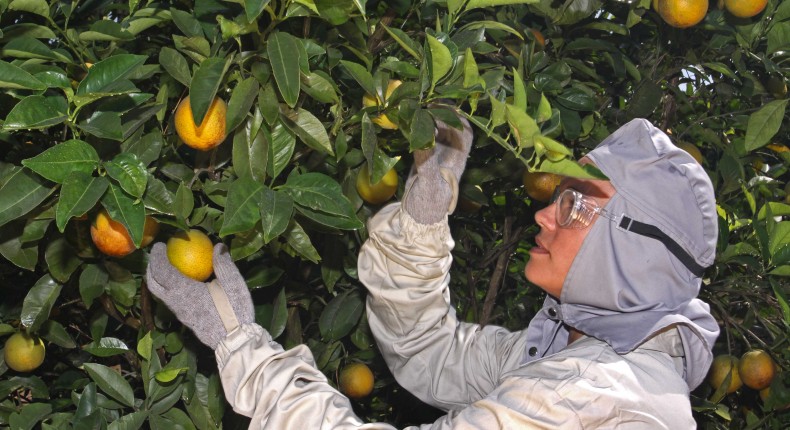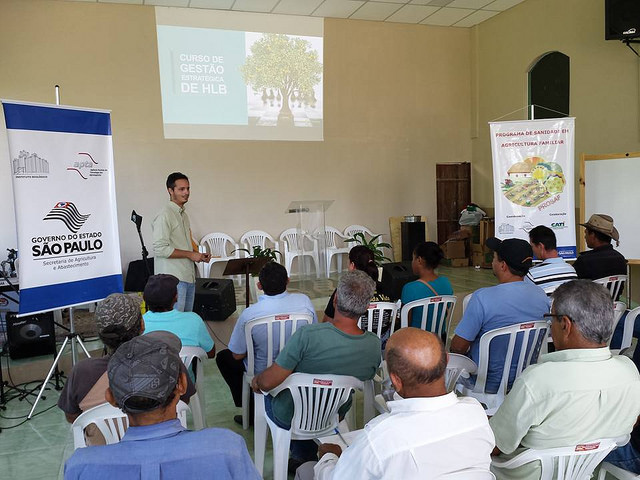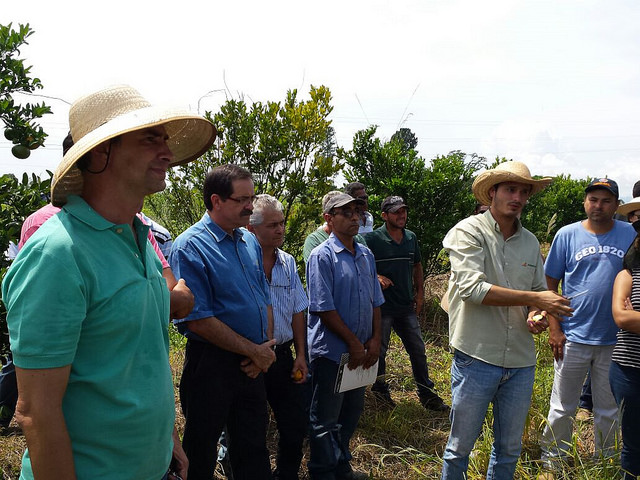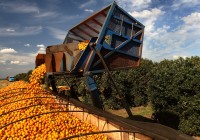6
abr

A programme developed by the government of the state of São Paulo and its Biology Institute trains family farmers on how to prevent and fight greening
The secretariat of agriculture and supply of the State of São Paulo has organized on march 23rd, 2016 a one-day event in the scope of the Programme of Agricultural Health for Family Farmers. The main goal was to train 40 fruit growers on how to identify one of the main diseases affecting citrus groves (greening) and the best practices to fight the disease.
This is the second time in the last six months when the Biology Institute (BI) of the secretariat organizes such events. A third step is planned in the programme, when farmers collect material from trees that might be infected and send for analysis of the BI who will issue a report indicating or not the presence of the disease.
According to the secretary of agriculture, Mr. Arnaldo Jardim, generate income and guarantee safe products are two of the main goals of the government in the agriculture secretariat.
The results of the programme will help growers plan collective actions, since fighting the disease requires regional management. The insect that transmits the disease can fly from one property to another.
For the farmer Walter Adriano Pereira, this initiative “has a good technical quality in terms of information”. The same good perception is shared by the grower Sandro Cavini, who believes “this event reinforces the need of information to fight the disease”.
The farmer Ronaldo José dos Santos showed concern about the disease, but “at the same time felt hopeful when looking at the tecniques shared to control the greening”.
The activities of the programme are developed jointly by the Biology Institute, the Coordination of agricultural defence, the Coordination of Technical Assistance (CATI) and the regional group of the “Vale do Paraíba” region. In the event held in Tremembé, it counted with the help of Fundecitrus.
Since 2009, the programme has trained more than 1,500 people in several municipalities.
Source: Information published by the government of the state of São Paulo written by Hélio Filho (original available in portuguese only)
Photos: Harumi Hojo
- |



